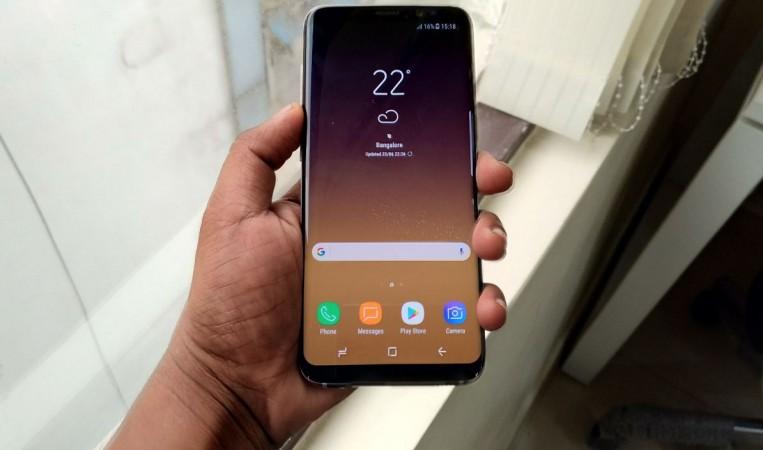Samsung's next flagship smartphone, presumably dubbed the Galaxy S9, will likely feature a 3D sensor-equipped front camera offering improved facial recognition capabilities, a new report said on Thursday.
Currently, Apple's newly-designed iPhone X sports a similar technology, called TrueDepth camera system, which allows the Face ID to make a complete 3D map of the user's face, and match it against the stored image on the phone to unlock it.
As for the next-generation Galaxy S9, Samsung is planning to enhance the accuracy, safety and speed of the facial recognition functionality by implementing a 3D technology, which will be similar to the iPhone X's TrueDepth camera system, SamMobile reported, citing "latest whispers out of China."

If the latest rumour turns out to be true, inclusion of a 3D sensor-enabled facial recognition system in the Galaxy S9 will possibly jeopardise the future of existing biometric features like the iris scanner and the fingerprint sensor.
However, Samsung does have some valid reasons to be on the lookout for a better technology to replace these features.
Following the launch of the Galaxy S8 and S8+ earlier this year, a group of hackers used a simple technique to hack the Galaxy S8's Iris scanning technology. They used a printed photograph of the owner's iris, placed a contact lens to replicate the eye's curvature and scanned it by placing it in front of the device.
When it comes to the rear fingerprint sensor, Samsung had to face a lot of criticism for placing it in an uncomfortable position alongside the camera. Some experts even said that it was a big design flaw by Samsung.

Thursday's report came days after KGI Securities analyst Ming-Chi Kuo said in his recent note that Apple's push for facial recognition and the TrueDepth Camera would encourage Android smartphone makers to begin researching similar solutions.
Kuo also said in another note that Android manufacturers would take up to two and a half years to match the functionality and user experience of the TrueDepth camera featured in the iPhone X.










